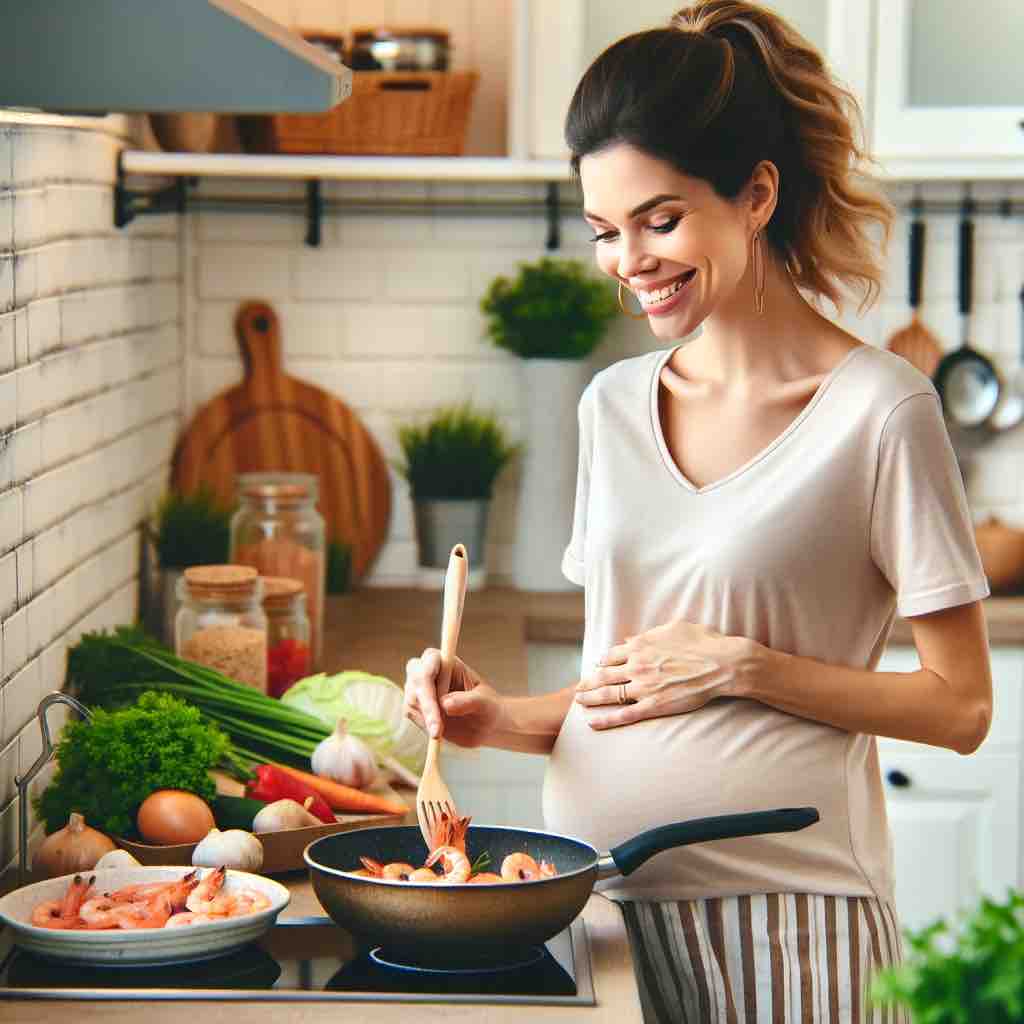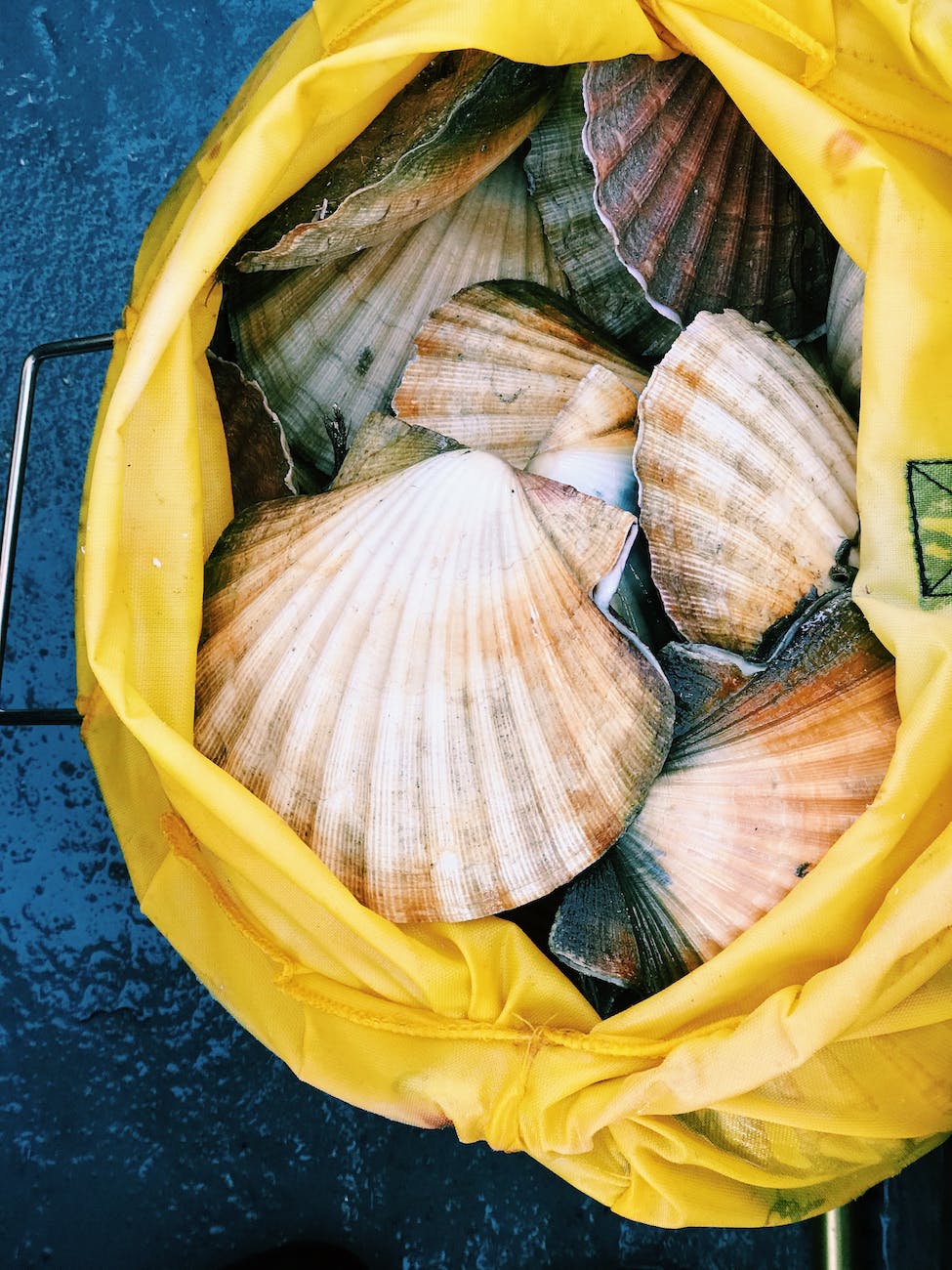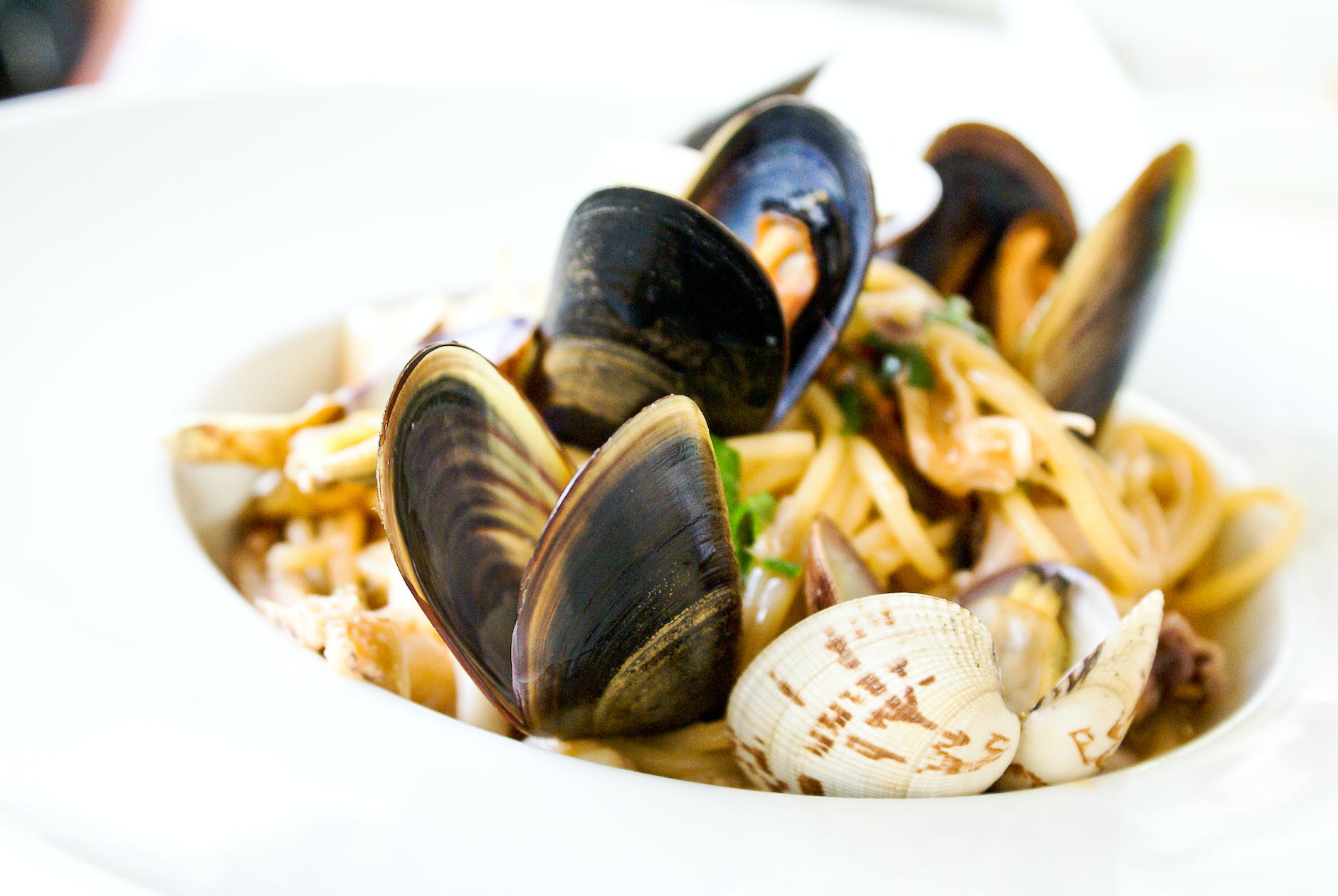
Introduction
Unveiling the Truth About Shrimp in Pregnancy Diets: A Comprehensive Guide
Welcome to a journey through the world of pregnancy nutrition, where we unravel one of the most debated topics – the consumption of shrimp during pregnancy. It’s a culinary conundrum that has left many expectant mothers pondering at the dinner table: Can I enjoy my favorite seafood dish without compromising the health of my baby?
Imagine this: you’re standing in front of the seafood aisle, eyeing the fresh, succulent shrimp. Your taste buds tingle with anticipation, yet your mind is clouded with questions. Is it safe? How much is too much? Does the benefit outweigh the risk? These questions aren’t just common; they’re crucial. After all, when you’re eating for two, every bite counts.
But why is there so much fuss about shrimp and pregnancy? For starters, the conversation around seafood during pregnancy is layered with concerns about mercury content and the risk of foodborne illnesses – two factors that can significantly impact fetal health. However, amidst these cautions, shrimp emerges as a unique contender. Low in mercury and rich in nutrients, it stands out as a potentially excellent addition to a prenatal diet. But, as with anything during pregnancy, it’s not just about the ‘what’; it’s about the ‘how’ and ‘how much.’
In this comprehensive guide, we dive deep into the ocean of facts, myths, and scientific insights. Our goal? To equip you with the knowledge and confidence to make informed decisions about including shrimp in your pregnancy diet. From understanding the nutritional profile of shrimp to navigating the dos and don’ts of seafood consumption during these crucial nine months, we’ve got you covered.
So, let’s embark on this flavorful exploration, where we’ll sift through the research, consult with experts, and bring to light the realities of consuming shrimp while expecting. Whether you’re a seafood aficionado or just looking to expand your pregnancy diet options, this guide promises to be your trusted companion in making informed, healthful choices for you and your little one. Get ready to have your queries answered and your concerns addressed, as we delve into the fascinating world of shrimp during pregnancy.
Section 1: Understanding the Basics
The Essence of Shrimp in the Seafood Spectrum
Before we plunge into the depths of the great shrimp debate, let’s first acquaint ourselves with what shrimp really is in the grand tapestry of seafood. Shrimp, a small, delicate crustacean, is not just a popular choice for its flavor but also for its versatility in cuisines around the globe. Often lauded as a culinary delight, shrimp brings to the table more than just taste; it’s a powerhouse of nutrients, wrapped in a shell of culinary delight.
However, the mere mention of seafood during pregnancy often sets off alarm bells. Why? The ocean, as bountiful and benevolent as it is, also harbors elements that can pose risks during pregnancy. This is where shrimp sets itself apart from its aquatic counterparts. Unlike some of its larger, predatory neighbors in the sea, shrimp is known for its significantly lower mercury content. But, as with any food during pregnancy, the mantra is moderation and caution.
Why the Concern? Decoding the Dilemma
When discussing seafood and pregnancy, the central concerns revolve around two key issues: mercury content and the risk of foodborne illnesses. Mercury, a naturally occurring but toxic element, is found in various levels across different types of seafood. Its implications during pregnancy are profound as it can cross the placental barrier, potentially affecting the developing fetal brain and nervous system.
The second concern is the risk of foodborne illnesses. Seafood, especially when raw or undercooked, can harbor harmful bacteria and viruses. The immune system of a pregnant woman is in a state of natural suppression, making her more susceptible to these pathogens. This is why the preparation and cooking of seafood, shrimp included, become focal points in the conversation.
In this intricate balance of benefits and risks, shrimp emerges as a unique player. It offers the promise of nutritional benefits while posing a relatively lower risk compared to other seafood options. But how does one navigate this balance? The key lies in understanding not just the ‘why’ but also the ‘how’ of including shrimp in a pregnancy diet. As we delve deeper into the following sections, we’ll unfold the layers of benefits, risks, and guidelines that surround the consumption of shrimp during pregnancy.
Armed with this basic understanding, we are now ready to dive into the nutritional wonders of shrimp and how they align with the needs of an expectant mother and her developing baby. Let’s embark on this journey of discovery, exploring the intersection of taste, health, and mindful eating in the context of pregnancy.
Section 2: Health Benefits of Eating Shrimp During Pregnancy
Nourishing the Mother and the Developing Baby
As we delve into the nutritional treasure chest that shrimp offers, it becomes evident why this seafood is often recommended for pregnant women. Shrimp is not just a delectable treat for the palate; it’s a bundle of essential nutrients, each playing a vital role in supporting both the mother’s and the baby’s health during this critical period.
Protein Powerhouse for Fetal Development
One of the standout nutrients in shrimp is its high protein content. Protein is the building block of life, essential for the growth and development of the fetus. It aids in the formation of organs, muscles, and the nervous system. Shrimp, in its compact form, provides a substantial amount of high-quality protein, which is particularly vital during the second and third trimesters when the baby’s growth is at its peak.
Omega-3 Fatty Acids: Supporting Brain and Eye Development
Shrimp is a source of omega-3 fatty acids, notably DHA and EPA, which are crucial for the neurological and visual development of the baby. These fatty acids contribute to the formation of the retina and the brain, playing a pivotal role in cognitive and visual functions. Regular intake of shrimp can help ensure that pregnant women receive an adequate supply of these essential fats, which are often hard to come by in other food sources.
Iron to Ward Off Anemia
Iron is another key nutrient found in shrimp. During pregnancy, a woman’s blood volume increases, raising her need for iron. This mineral is vital for making hemoglobin, the protein in red blood cells that carries oxygen to other cells. Adequate iron intake helps prevent anemia, a common condition in pregnancy characterized by fatigue and increased risk of infections. The iron in shrimp is easily absorbed, making it an excellent choice for maintaining healthy iron levels.
Low-Fat and Heart-Healthy
Contrary to the common misconception that seafood is high in fat, shrimp is surprisingly low in unhealthy fats and calories. This makes it an excellent choice for pregnant women who need to manage their weight effectively. Moreover, the healthy fats present in shrimp are beneficial for heart health, a critical consideration during pregnancy when the heart is under increased strain.
Rich in Other Essential Nutrients
Besides these key nutrients, shrimp is also a treasure trove of other vitamins and minerals. It’s a good source of vitamin B12, crucial for the nervous system and the formation of red blood cells. It also provides choline, which aids in the baby’s brain development, and selenium, an antioxidant that helps protect the body’s cells from damage.
The Takeaway: A Nutrient-Dense Choice
In summary, shrimp presents itself as a nutrient-dense choice for pregnant women. Its profile aligns perfectly with the heightened nutritional needs of pregnancy. By incorporating shrimp into a balanced prenatal diet, expectant mothers can help ensure that they are meeting their own nutritional needs while supporting the healthy growth and development of their baby.
As we move forward, it’s crucial to balance this understanding of the benefits with an awareness of the potential risks and the safe ways to include shrimp in a pregnancy diet. In the next section, we will navigate through the risks and precautions associated with consuming shrimp during pregnancy, ensuring that you can enjoy this seafood delicacy safely and responsibly.
Section 3: Risks and Precautions When Eating Shrimp During Pregnancy
Navigating the Concerns: A Closer Look at Potential Risks
While the benefits of including shrimp in a pregnancy diet are significant, it’s equally important to consider and mitigate potential risks. Understanding these risks and taking appropriate precautions can ensure a safe and healthy pregnancy experience.
Mercury Content: Understanding the Real Risk
- The Mercury Factor: Shrimp is often lauded for its low mercury content compared to other seafood. Mercury, a neurotoxin, can be particularly harmful during pregnancy, potentially affecting the baby’s brain and nervous system development.
- Relative Safety of Shrimp: Among seafood choices, shrimp stands out as a safer option due to its lower place in the aquatic food chain, resulting in less accumulation of mercury.
- Moderation is Key: Despite its relative safety, it is essential to consume shrimp in moderation, aligning with recommended guidelines to minimize any risk.
Foodborne Illnesses: Prevention and Care
- Raw and Undercooked Seafood: Raw or undercooked shrimp can be a source of harmful bacteria and viruses. The immune system in pregnant women is naturally suppressed, increasing susceptibility to foodborne illnesses.
- Risks of Listeriosis: One of the significant risks of consuming raw shrimp is listeriosis, a bacterial infection that can be transmitted to the fetus, potentially leading to miscarriage, premature birth, or severe illness in newborns.
- Safe Cooking Practices: Ensuring that shrimp is thoroughly cooked is crucial. Proper cooking at the right temperatures effectively kills harmful pathogens, making shrimp safe for consumption.
Allergy Considerations
- Potential Allergic Reactions: It’s important to be aware of and cautious about shellfish allergies, which can be exacerbated during pregnancy. If you have a history of shellfish allergies, it’s best to avoid shrimp entirely.
- Consulting with a Healthcare Provider: Always discuss your diet, including seafood intake, with your healthcare provider, especially if you have food allergies or sensitivities.
Precautions for Safe Shrimp Consumption
- Adhering to Guidelines: Follow the FDA and EPA guidelines on seafood consumption, particularly focusing on the recommended quantity of shrimp per week.
- Source and Quality: Opt for shrimp sourced from reputable suppliers. Pay attention to any advisories about seafood harvested from local waters, as they may have different contamination levels.
- Cleaning and Preparation: Properly clean shrimp before cooking. This includes rinsing them thoroughly and removing the heads, shells, and veins.
- Cooking to Perfection: Cook shrimp until it reaches an internal temperature of 145 degrees Fahrenheit. The shrimp should be opaque and milky white throughout, with no grey areas.
The Takeaway: A Balanced Approach
Incorporating shrimp into your pregnancy diet can be a delightful and nutritious choice, provided these risks and precautions are carefully considered and addressed. By being informed about the potential hazards and adhering to safe consumption practices, you can enjoy the benefits of shrimp while ensuring the safety and well-being of both you and your developing baby.
In the next section, we will explore the various ways shrimp can be safely included in your pregnancy diet, along with some delicious and healthy recipe ideas. Stay tuned for creative culinary inspirations that make the most of shrimp’s nutritional benefits while adhering to the safety guidelines.
Section 4: Safe Consumption Guidelines and Culinary Inspirations
Embracing Shrimp in Your Pregnancy Diet: How to Do It Right
Enjoying shrimp during pregnancy doesn’t just stop at knowing its benefits and risks; it’s also about understanding how to incorporate it into your diet safely and deliciously. This section provides a guide to doing just that, ensuring you reap the nutritional rewards without compromising on taste or safety.
Smart Shrimp Selection: Quality and Source Matter
- Choosing the Right Shrimp: Opt for fresh or frozen shrimp from reputable sources. Look for labels indicating sustainable and responsible farming or fishing practices.
- Understanding Varieties: Explore different types of shrimp, such as wild-caught or farmed, and understand their origins. Some varieties, like wild-caught spot prawns or US-farmed shrimp, are known for higher quality and safety standards.
- Avoiding Contaminated Waters: Be aware of the source of the shrimp, especially if it comes from areas with known pollution or mercury contamination. This is crucial to minimize exposure to harmful substances.
Preparing and Cooking Shrimp: The Key to Safety
- Thorough Cleaning: Begin by thoroughly washing the shrimp under cold water. Remove the shell, tail, and devein them to eliminate any dirt or bacteria.
- Cooking Guidelines: Cook shrimp until they are opaque and milky white all the way through, indicating they are fully cooked. Avoid any grey areas, as they signify undercooked shrimp.
- Temperature Check: Ensure shrimp reach an internal temperature of 145 degrees Fahrenheit to kill off any potentially harmful bacteria.
Creative and Safe Shrimp Recipes for Pregnancy
- Indian-Style Shrimp Curry: Enjoy the flavors of spices with a nutrient-packed shrimp curry. The combination of spices not only enhances taste but also aids in digestion.
- Shrimp and Vegetable Stir-Fry: Combine shrimp with a medley of colorful vegetables for a quick and healthy meal. Use olive oil and low-sodium sauces for a healthier twist.
- Grilled Shrimp Skewers: Marinate shrimp in lemon juice, garlic, and herbs, then grill them to perfection. Serve with a side of quinoa or brown rice for a balanced meal.
- Shrimp Salad with Leafy Greens: Toss cooked shrimp with a variety of leafy greens, cherry tomatoes, and a light vinaigrette for a refreshing and nutritious salad.
Ensuring Variety and Moderation
- Balancing Intake: While shrimp can be a healthy part of your pregnancy diet, it should be one of various protein sources. Balance your intake with other low-mercury fish, lean meats, beans, and legumes.
- Adhering to Recommended Portions: Keep in mind the recommended portions for seafood consumption during pregnancy – 8 to 12 ounces per week.
The Takeaway: Culinary Enjoyment with Health in Mind
Incorporating shrimp into your pregnancy diet can be both safe and enjoyable. By choosing the right type of shrimp, preparing it properly, and experimenting with different recipes, you can enjoy the myriad flavors and textures it offers. Remember, the key is to enjoy shrimp as part of a varied and balanced diet, always keeping in mind the safety guidelines and recommended portions.
In the next section, we will address some common myths and facts about eating shrimp during pregnancy, helping you separate truth from fiction and make informed dietary choices. Stay tuned for a myth-busting journey that will empower you with knowledge and confidence.
Section 5: Myths vs. Facts – Demystifying Shrimp Consumption During Pregnancy
Dispelling Misconceptions for an Informed Dietary Choice
Pregnancy is often accompanied by a deluge of advice, some of which can be misleading, especially when it comes to diet. Shrimp, with its unique nutritional profile and concerns, is no exception. This section aims to debunk common myths and clarify facts, empowering expectant mothers to make well-informed decisions about including shrimp in their pregnancy diets.
Myth 1: All Seafood is High in Mercury and Unsafe During Pregnancy
- Fact: While certain types of fish are high in mercury and should be avoided, many, including shrimp, are low in mercury and safe for pregnant women when consumed in recommended amounts.
- Expert Insight: Understand the difference between high-mercury fish (like shark and swordfish) and low-mercury options like shrimp, pollock, and salmon.
Myth 2: Eating Shrimp Can Lead to Unhealthy Weight Gain
- Fact: Shrimp is low in calories and fat, making it an excellent choice for maintaining a healthy weight during pregnancy. Its high protein content can actually support healthy weight management.
- Nutritional Perspective: Compare shrimp’s nutritional value with other protein sources to highlight its benefits in a balanced pregnancy diet.
Myth 3: Shrimp Offers No Special Benefits to Pregnant Women
- Fact: Shrimp is rich in essential nutrients like protein, omega-3 fatty acids, iron, and vitamins, all of which are crucial for the health of both mother and baby.
- Health Benefits Explained: Elaborate on how these nutrients contribute to fetal development, brain health, and the prevention of anemia.
Myth 4: You Can Only Eat Shrimp in Limited Ways During Pregnancy
- Fact: There are numerous safe and delicious ways to prepare and enjoy shrimp during pregnancy, from grilled and sautéed to included in soups and salads.
- Culinary Creativity: Share a variety of pregnancy-safe shrimp recipes that are both nutritious and appealing.
Myth 5: It’s Okay to Eat Raw Shrimp if It’s Fresh
- Fact: Pregnant women should never consume raw or undercooked shrimp due to the risk of foodborne illnesses, regardless of how fresh it is.
- Safety First: Emphasize the importance of fully cooking shrimp and avoiding dishes like sushi or ceviche that contain raw shrimp.
Myth 6: All Types of Shrimp Are Equally Safe
- Fact: The safety of shrimp can vary based on its source. Wild-caught shrimp from clean waters are generally safer than those from polluted areas.
- Choosing Wisely: Guide readers on how to select the safest types of shrimp, considering factors like origin and farming practices.
The Takeaway: Empowered by Truth
By debunking these myths and reinforcing the facts, we aim to remove the cloud of uncertainty surrounding shrimp consumption during pregnancy. Expectant mothers can now enjoy shrimp, confident in the knowledge that they are making choices that benefit both their health and that of their baby.
In the concluding section, we will summarize the key takeaways from our comprehensive exploration of shrimp in pregnancy diets and offer final thoughts to guide expectant mothers on this delicious and nutritious journey. Stay tuned for our wrap-up, which aims to consolidate your learning and offer a clear path forward.
Section 6: Concluding Insights – Embracing Shrimp in Pregnancy with Confidence
Wrapping Up: The Balanced Path to Nutritional Well-being
As we draw this comprehensive guide to a close, it’s essential to encapsulate the rich tapestry of information we’ve explored about consuming shrimp during pregnancy. This final section aims to tie together all the threads of knowledge, advice, and culinary inspiration, providing a clear, concise, and reassuring summary for expectant mothers.
Key Takeaways: Navigating Shrimp Consumption with Informed Choice
- Nutritional Powerhouse: Recognize shrimp as a rich source of proteins, omega-3 fatty acids, iron, and vitamins – all vital for the health and development of both mother and baby.
- Safe Consumption Practices: Emphasize the importance of selecting high-quality shrimp, ensuring proper cooking, and adhering to recommended dietary guidelines to mitigate risks.
- Creative and Diverse Culinary Options: Reflect on the various delicious and safe ways to incorporate shrimp into a pregnancy diet, balancing taste and nutrition.
Reinforcing Safe Practices and Recommendations
- Regular Consultation with Healthcare Providers: Encourage ongoing dialogue with healthcare professionals to personalize dietary choices based on individual health needs and pregnancy progression.
- Staying Updated with Guidelines: Remind readers of the importance of staying abreast of the latest FDA and EPA recommendations and local advisories concerning seafood consumption.
- Moderation is Key: Reinforce the idea of enjoying shrimp as part of a varied and balanced diet, maintaining moderation to optimize benefits and minimize risks.
Addressing Common Concerns and Questions
- Revisiting Myths vs. Facts: Recap the debunked myths and established facts, clearing any lingering doubts or misconceptions about shrimp consumption during pregnancy.
- Empowering Through Knowledge: Highlight the importance of being informed and aware, enabling expectant mothers to make decisions that align with both their dietary preferences and their health requirements.
Final Thoughts: A Journey of Taste and Health
Pregnancy is a unique and personal journey, and the choice of diet plays a significant role in it. By understanding the benefits and risks associated with shrimp and adopting safe consumption practices, expectant mothers can enjoy this delightful seafood while nurturing the growth and well-being of their unborn child.
In closing, we encourage you to embrace the journey of pregnancy with joy, confidence, and a sense of culinary adventure. Let shrimp be a part of your nutritious and varied diet, bringing not just health benefits but also the pleasure of good food to your pregnancy experience. Remember, a well-informed choice is the cornerstone of a healthy, happy pregnancy journey.
As you continue to navigate the exciting path of motherhood, may this guide serve as a helpful companion, illuminating the way toward informed dietary choices and a joyful, healthy pregnancy. Bon appétit and best wishes for a nourishing journey ahead!
Frequently Asked Questions (FAQs) and Answers
- Is shrimp safe to eat during pregnancy?
- Yes, shrimp is safe to consume during pregnancy. It is low in mercury and rich in essential nutrients, but should be eaten in moderation according to FDA guidelines.
- How much shrimp can I safely eat per week during pregnancy?
- Pregnant women are advised to consume 8 to 12 ounces (about two to three servings) of low-mercury seafood like shrimp per week.
- What are the benefits of eating shrimp while pregnant?
- Shrimp is a great source of protein, omega-3 fatty acids, iron, and other vital nutrients, which support fetal development and maternal health.
- Can eating shrimp during pregnancy help with fetal brain development?
- Yes, the omega-3 fatty acids (DHA and EPA) in shrimp are crucial for fetal brain and eye development.
- Is there any risk of mercury poisoning from eating shrimp during pregnancy?
- Shrimp is considered to have low mercury content, making the risk of mercury poisoning very low when consumed in recommended amounts.
- Can I eat raw shrimp during pregnancy?
- No, pregnant women should avoid raw or undercooked shrimp due to the risk of foodborne illnesses, including listeriosis.
- Are there certain types of shrimp that are safer to eat during pregnancy?
- Wild-caught shrimp and US-farmed shrimp are generally safer options as they are often subject to stricter regulations and quality standards.
- How should shrimp be cooked for pregnant women?
- Shrimp should be cooked until it reaches an internal temperature of 145 degrees Fahrenheit, appearing opaque and milky white throughout.
- Can eating shrimp during pregnancy cause allergic reactions?
- If you have a known shellfish allergy, you should avoid shrimp during pregnancy. Always consult with a healthcare provider for personalized advice.
- Are there any specific shrimp dishes that are recommended for pregnant women?
- Safe shrimp dishes include thoroughly cooked shrimp curries, stir-fries, grilled shrimp skewers, and shrimp salads. Avoid dishes with raw or undercooked shrimp.
Blog Tags
Pregnancy Nutrition, Seafood and Pregnancy, Shrimp Health Benefits, Cooking Shrimp Safely, Omega-3 Fatty Acids, Healthy Pregnancy Diet, Low Mercury Seafood, Food Safety During Pregnancy, Prenatal Vitamins and Minerals, Balanced Maternal Diet













